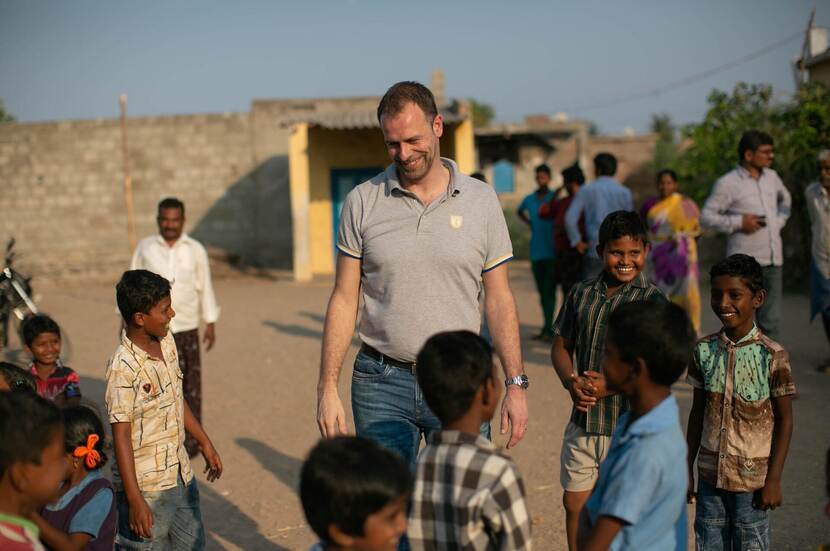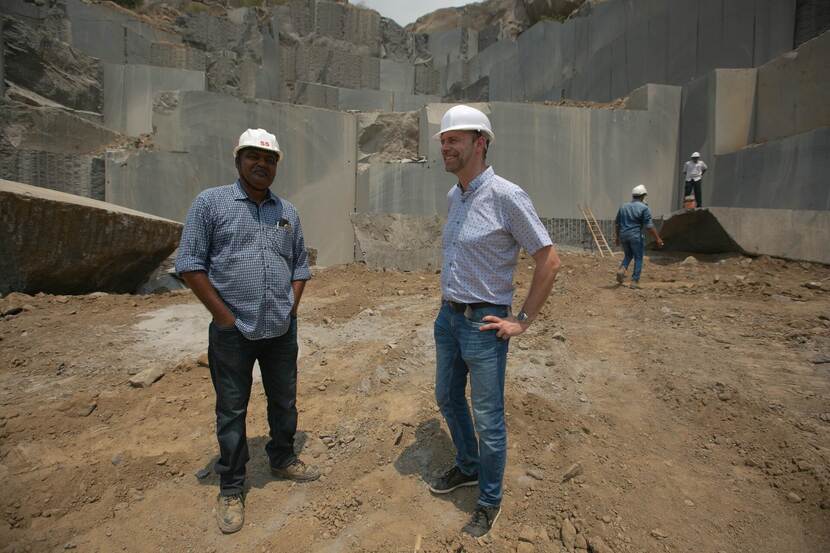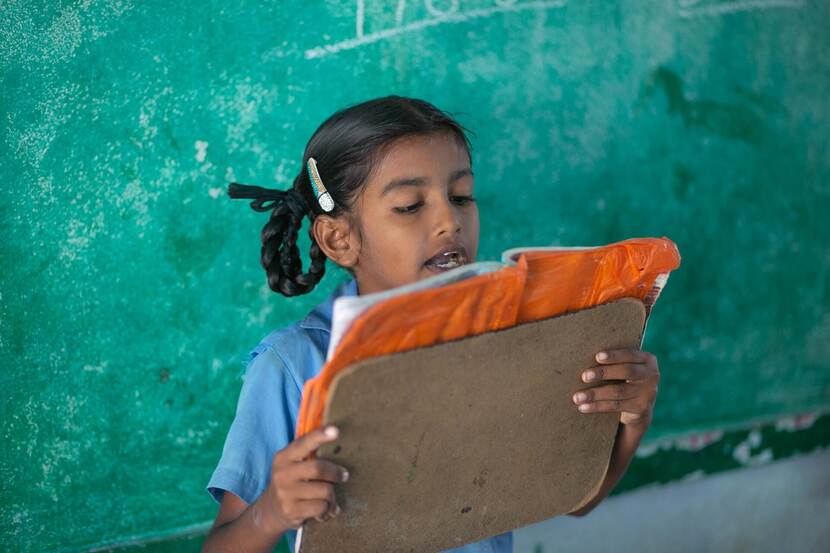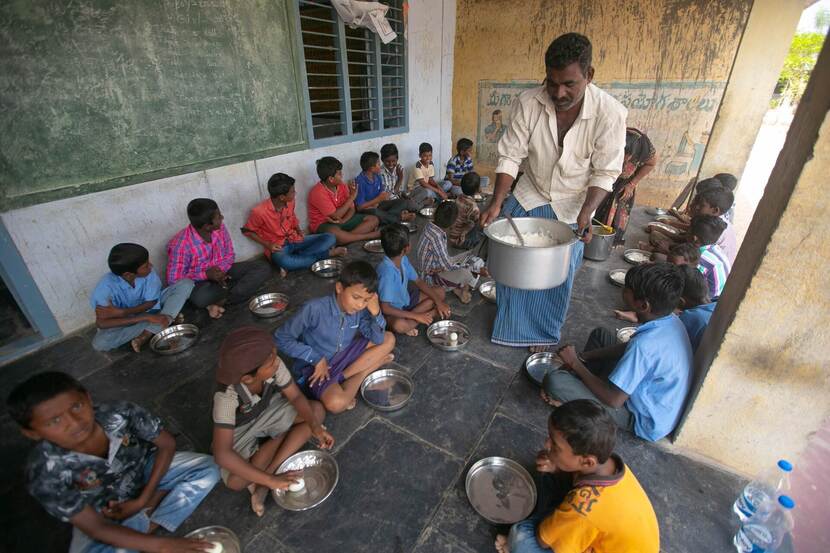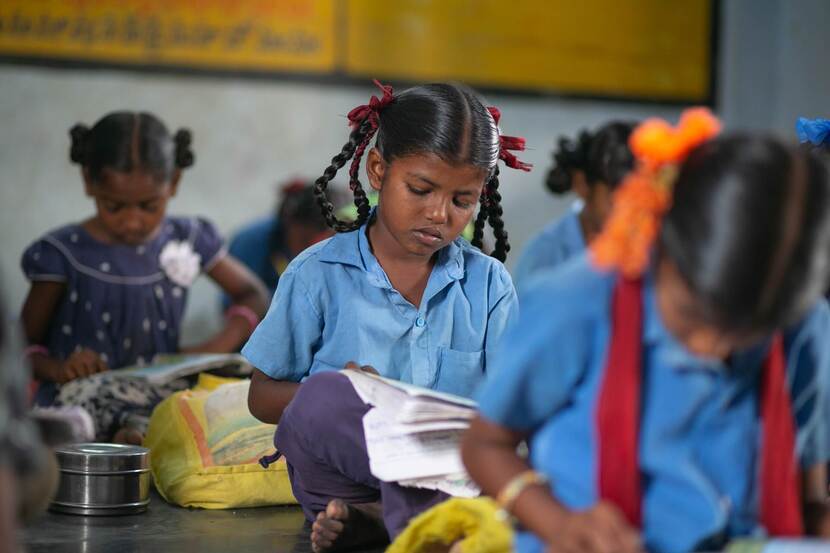Tackling child labour in India: lessons from business
Niels van den Beucken is financial director at Arte, a Dutch company that sells sustainable granite kitchen worktops. When he visited the quarry in India, he was confronted with child labour in the area. Since then, the company has been trying to get as many children as possible into school.
Children were serving water in the restaurants or working in the fields. At the edge of the quarry in Ballikurava Mandal, Niels van den Beucken saw children cutting stones, which they then made into bracelets to sell. Niels had never really thought about child labour until he travelled to southern India for the first time in 2010 to visit a granite supplier. Niels spoke to the supplier about what he had just seen outside the quarry, who told him, ‘No, this isn’t child labour, because I don’t pay the children. On the contrary, I help them: I give my waste away for free so that they can earn some money.’
Don’t build schools that will stay empty
All those children working when they should really be at school. Niels was concerned. ‘If there’s a way to tackle child labour, I’m going to do it,’ Niels thought. Internationally, the Netherlands is committed to combating child labour, for example by providing grants to companies that want to tackle the problem among their suppliers. For this purpose, the Netherlands Enterprise Agency (RVO) set up the Fund against Child Labour, a scheme that is supporting Arte’s efforts to create a child labour-free zone around the quarry.
But taking a sack of money to India and quickly building a primary school makes no sense, a local NGO explained. It is up to the local government to provide well-functioning public schools. Niels: ‘The NGO told me that it makes no sense at all to just go and build facilities. You first have to think about who would use and maintain the school. Otherwise you’ll end up with fabulous buildings that remain empty. That hit hard, but it was a real eye opener.’
Education is the key
So no new buildings, but instead a focus on the education itself. According to Niels, a change in mentality is needed. ‘We try to make parents aware of the importance of education. We can’t do this on our own from the Netherlands, so we’re working together with local parties,’ he explained. ‘We’ve appointed mobilisers who visit families to talk to parents. They also visit teachers to find out if the children actually attend classes. What’s more, the local NGO engages with the local government to make sure it shoulders its responsibility and, for example, provides good teaching materials to keep the children motivated.’
COVID-19 and school closures
Before the pandemic, Niels travelled to India once or twice a year. ‘That gave me a lot of energy and always generated new ideas.’ He discovered that the children of migrant workers were left to their own devices when their parents went out to work during the week, for example as rat catchers. In an existing school building, after-school care was arranged for 35 children, with homework assistance and an evening meal. Like teaching at many schools, this programme was suspended during the COVID-19 pandemic. Now the children accompany their parents. Niels wonders about the fate of these children and whether they help with the work.
Small businesses can also make a difference
Although Arte rarely gets questions from its customers about the origin of its natural stone worktops, Niels believes it is important to take responsibility as a company and strive for fair opportunities for children. The most difficult thing? ‘As a businessman, I have little patience,’ says Niels. ‘It takes a long time to bring about change. Things progress in small steps. Luckily, our project has now expanded to twelve villages. Sixty of the 240 children who were working at first are now going to school.’ Unfortunately, those schools have now had to close because of coronavirus, which, according to an audit by the Indian government, means that many children have gone back to work. Nevertheless, Niels wants to assure entrepreneurs that they can indeed make a difference to children’s lives. Even as a small business.
More lessons learned by businesses
Do you want to tackle child labour with your company? Read more in Lessons Learned.
